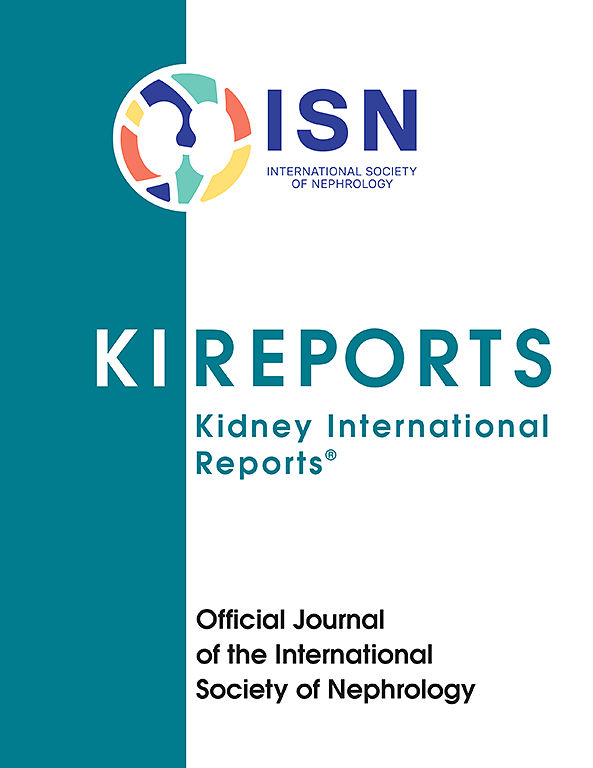肾脏疾病:改善CKD糖尿病管理实施的全球成果峰会建议:从初级到数据驱动的协作护理
IF 5.7
2区 医学
Q1 UROLOGY & NEPHROLOGY
引用次数: 0
摘要
2型糖尿病和慢性肾脏疾病(CKD)是可以预防和治疗的。他们的沉默和渐进的临床过程需要结构化的评估,并及时反馈给患者和护理提供者,以激活决策。除了慢性肾病,糖尿病患者还会出现影响多个器官的并发症,尤其是心血管系统、眼睛和脚。国际实践指南建议每年对眼睛、脚、血液和尿液进行评估,以发现无症状并发症,并测量心血管肾代谢(CKM)危险因素,以确保早期干预,包括多靶点治疗和使用器官保护药物。在本报告中,我们强调了CKD患者糖尿病管理实践指南实施中的障碍和差距,并提出了克服这些障碍的解决方案。通过改善执业环境和工作流程,培训护士在医疗监督下进行方案指导评估。系统的数据收集使医生能够及时做出决定,包括药物处方和转介给其他专家,以促进协作护理,而护士可以使用个性化数据增强患者自我管理能力并提高卫生素养。这种持续的数据收集将形成一个登记册,使支付方、提供者和患者在提供数据驱动和基于价值的护理方面保持一致,同时创造真实世界的证据,以验证治疗有效性并确定护理差距,同时提供在职培训。在生物库的配合下,对这些多维数据的持续收集和分析将改进诊断、分类、预后和治疗,以追求精准医学。本文章由计算机程序翻译,如有差异,请以英文原文为准。
Kidney Disease: Improving Global Outcomes Summit Recommendations on Implementation of Diabetes Management in CKD: From Primary to Data-Driven Collaborative Care
Type 2 diabetes and chronic kidney disease (CKD) are preventable and treatable. Their silent and progressive clinical course calls for structured assessment with timely feedback to patients and care providers for activating decision-making. Apart from CKD, patients with diabetes can have complications affecting multiple organs, notably the cardiovascular system, eyes, and feet. International practice guidelines recommend annual assessment of the eyes, feet, blood, and urine to detect silent complications and measure cardiovascular-kidney-metabolic (CKM) risk factors to ensure early intervention, including treatment to multiple targets and use of organ-protective drugs. In this report, we highlight the barriers and gaps in the implementation of practice guidelines in managing diabetes in CKD with proposed solutions to overcome such barriers. By improving the practice environment and workflow, nurses can be trained to perform protocol-guided evaluation under medical supervision. The systematic data collection enables physicians to make timely decisions, including drug prescriptions and referrals to other specialists to promote collaborative care, whereas nurses can use the personalized data to empower patient self-management and improve health literacy. This ongoing data collection will form a register to align payers, providers, and patients in delivering data-driven and value-based care with the creation of real-world evidence to verify treatment effectiveness and identify care gaps while providing on-the-job training. When accompanied by a biobank, the ongoing collection and analysis of this multidimensional data will refine diagnosis, classification, prognosis, and treatment in pursuit of precision medicine.
求助全文
通过发布文献求助,成功后即可免费获取论文全文。
去求助
来源期刊

Kidney International Reports
Medicine-Nephrology
CiteScore
7.70
自引率
3.30%
发文量
1578
审稿时长
8 weeks
期刊介绍:
Kidney International Reports, an official journal of the International Society of Nephrology, is a peer-reviewed, open access journal devoted to the publication of leading research and developments related to kidney disease. With the primary aim of contributing to improved care of patients with kidney disease, the journal will publish original clinical and select translational articles and educational content related to the pathogenesis, evaluation and management of acute and chronic kidney disease, end stage renal disease (including transplantation), acid-base, fluid and electrolyte disturbances and hypertension. Of particular interest are submissions related to clinical trials, epidemiology, systematic reviews (including meta-analyses) and outcomes research. The journal will also provide a platform for wider dissemination of national and regional guidelines as well as consensus meeting reports.
 求助内容:
求助内容: 应助结果提醒方式:
应助结果提醒方式:


